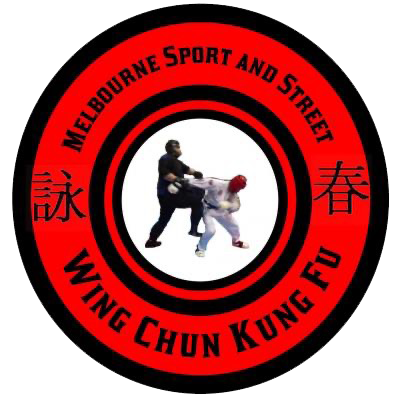Exploring Traditional Martial Arts and Their Philosophies
As an experienced martial arts instructor, I am passionate about the rich history and philosophies behind various traditional fighting styles. Each style has its unique characteristics and guiding principles that go beyond physical techniques.
In this article, we will delve into some of the most prominent traditional martial arts and uncover the philosophies that have shaped their practices.
The Philosophy Behind Karate
Karate, the “Way of the Empty Hand,” originated in Okinawa, Japan, and is renowned for its powerful strikes and fluid movements. The philosophy of Karate centers around the pursuit of self-discipline, respect, and self-improvement. Practitioners are encouraged to develop their character and maintain humility, using their skills only for self-defense and never for aggression.
Emphasizing Self-Discipline and Inner Strength
The philosophy of self-discipline is at the core of Karate. Through rigorous training and dedication, practitioners cultivate mental and physical strength. The focus on self-discipline extends to daily life, encouraging individuals to be mindful of their actions and choices.
Cultivating Respect and Courtesy
Respect for others and oneself is a fundamental aspect of Karate’s philosophy. In the dojo, students show respect to their instructors and fellow practitioners, fostering a harmonious training environment. This philosophy extends beyond the training hall, promoting courtesy and empathy in all interactions.
The Journey of Self-Improvement
Karate emphasizes the concept of continuous improvement. Practitioners strive to refine their techniques and deepen their understanding of the art throughout their lives. The journey of self-improvement in Karate is never-ending, and each step taken is valued as progress.
The Philosophy Behind Taekwondo
Taekwondo, originating from Korea, is distinguished by its dynamic kicking techniques and fast-paced movements. The philosophy of Taekwondo is based on five tenets: courtesy, integrity, perseverance, self-control, and indomitable spirit. These tenets guide practitioners not only in their training but also in their everyday lives.
Demonstrating Courtesy and Respect
Taekwondo practitioners adhere to the principle of showing courtesy and respect to others. This includes addressing instructors and seniors with respect and acting with politeness and kindness towards peers and opponents.
Upholding Integrity and Honesty
Integrity is a key tenet in Taekwondo, emphasizing honesty and ethical behavior. Practitioners are encouraged to demonstrate integrity both on and off the mat, upholding strong moral principles.
Perseverance in the Face of Challenges
The philosophy of perseverance in Taekwondo encourages practitioners to face challenges with determination and resolve. This tenet instills a sense of resilience, enabling individuals to overcome obstacles and achieve their goals.
Cultivating Self-Control and Discipline
Self-control is an essential aspect of Taekwondo’s philosophy, promoting restraint and discipline in actions and emotions. Practitioners learn to maintain composure even in high-pressure situations.
Embodying the Indomitable Spirit
The indomitable spirit in Taekwondo signifies an unwavering determination and courage. Practitioners face difficulties with a strong will and positive attitude, never succumbing to fear or doubt.
The Philosophy Behind Brazilian Jiu-Jitsu
Brazilian Jiu-Jitsu (BJJ) is a ground-based martial art that focuses on grappling and submissions. Its philosophy revolves around the concept that technique and leverage can overcome size and strength. BJJ emphasizes the principles of humility, continuous learning, and practicality.
Embracing Humility and Openness to Learning
BJJ practitioners are encouraged to approach training with humility, recognizing that there is always more to learn. This philosophy fosters a receptive mindset, allowing individuals to absorb new techniques and adapt their skills.
The Concept of “Rolling” as a Learning Experience
In BJJ, “rolling” refers to live sparring sessions where practitioners apply techniques in a dynamic setting. This aspect of BJJ emphasizes the practicality of techniques and the importance of testing them in real-life scenarios.
Applying Technique and Leverage over Strength
The philosophy of BJJ centers around the belief that technique and leverage can overcome physical strength. This principle is especially empowering for smaller individuals facing larger opponents.
Problem-Solving and Creativity in Martial Arts Combat
BJJ encourages problem-solving and creativity during sparring. Practitioners learn to strategize and adapt their techniques to effectively counter their opponent’s movements.
The Philosophy Behind Kung Fu
Kung Fu, an umbrella term for Chinese martial arts, encompasses a wide range of styles with distinct philosophies. Generally, Kung Fu emphasizes the harmony of mind and body, as well as the integration of external techniques with internal energy cultivation.
Uniting Mind and Body in Harmony
Kung Fu’s philosophy revolves around the idea of unifying the mind and body. Through training, practitioners strive to achieve a balance between physical techniques and mental focus.
Cultivating Internal Energy (Qi)
Internal Kung Fu styles, such as Tai Chi, focus on cultivating internal energy or “Qi.” The philosophy behind Qi emphasizes harnessing internal power for both martial effectiveness and overall health.
Emphasizing Fluidity and Softness
Some Kung Fu styles prioritize fluid and soft movements, which allow practitioners to redirect an opponent’s force rather than resisting it directly. This philosophy emphasizes efficiency and conserving energy during combat.
The Concept of Yin and Yang in Martial Arts
Kung Fu’s philosophy draws from the principles of Yin and Yang, representing the balance of opposing forces. In combat, practitioners seek to harmonize their techniques with the energy of their opponents.
Conclusion:
Exploring the philosophies behind traditional martial arts reveals the depth and richness of martial arts. Each style embodies unique values and principles that extend beyond the physical techniques. Karate’s focus on self-discipline and respect, Taekwondo’s emphasis on integrity and indomitable spirit, BJJ’s philosophy of humility and practicality, and Kung Fu’s pursuit of mind-body harmony all contribute to the diverse tapestry of martial arts.
As practitioners, we have the opportunity to embrace not only the physical aspects of our chosen style but also the deeper philosophies that guide our martial arts journey. By understanding and embodying these principles, we can cultivate not only our fighting skills but also our character and personal growth.
Ultimately, the philosophies behind traditional martial arts shape us into not only skilled martial artists but also better individuals in our daily lives.

